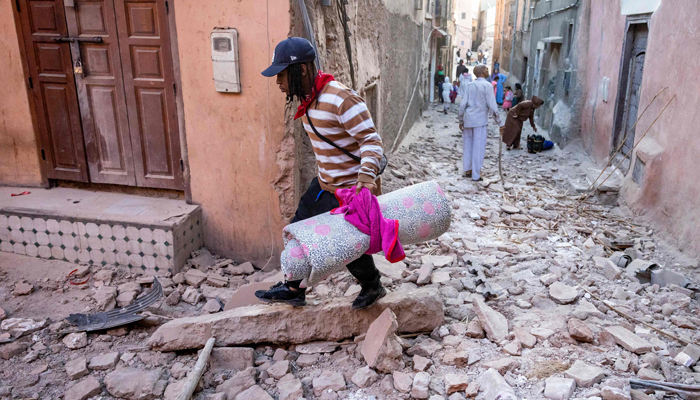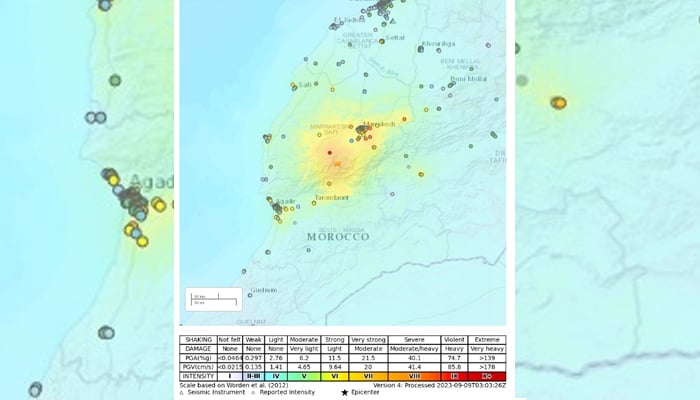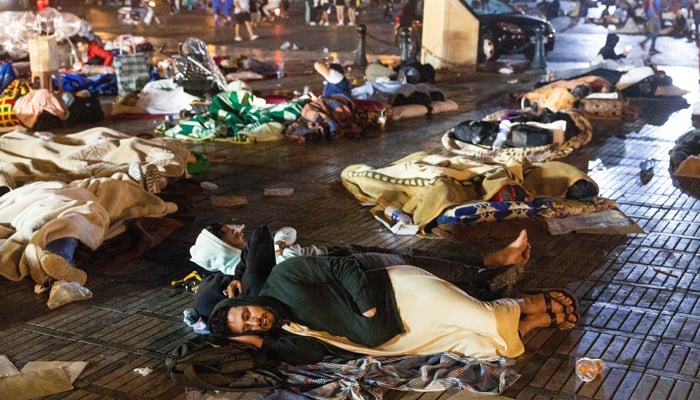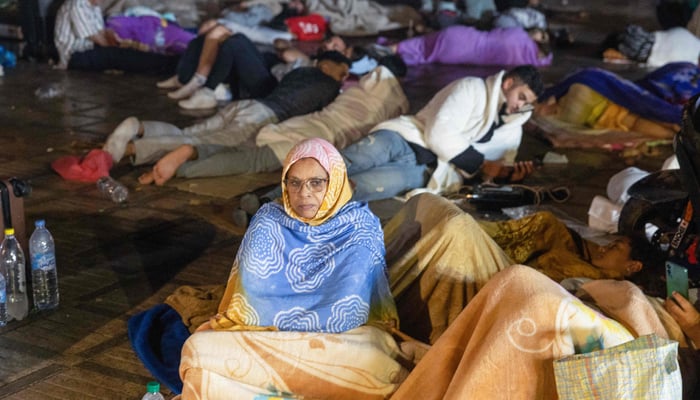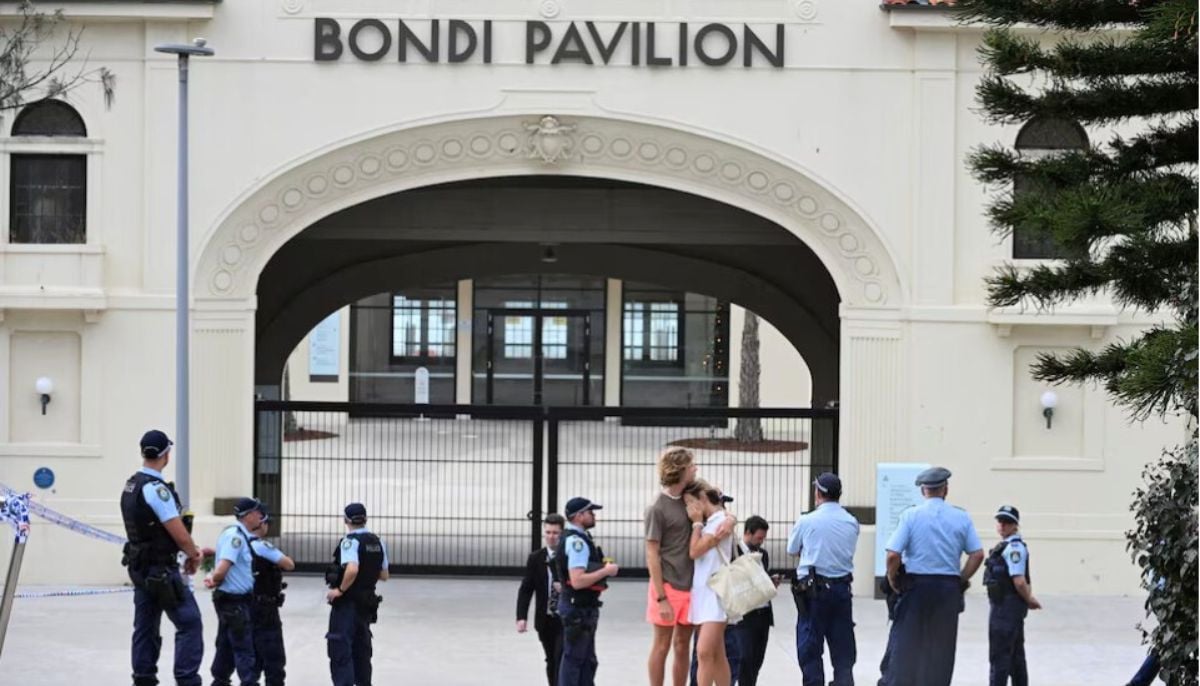Morocco earthquake: Death toll crosses 1,300 as search for survivors intensifies
Earthquake hit 44 miles southwest of Marrakesh at depth of 18.5 kilometres at 11:11pm local time (2211 GMT)
More than 1,300 have lost their lives as a powerful 6.8 magnitude earthquake struck Marrakesh, Morocco on Friday, triggering chaos as multiple videos surfacing on social media showed collapsing buildings and debris.
The earthquake hit 44 miles (71 kilometers) southwest of Marrakesh at a depth of 18.5 kilometres at 11:11 pm local time (2211 GMT).
According to an updated toll from the interior ministry, a total of 1,037 people have been confirmed dead, while 1,204 people were injured, of whom 721 are in critical condition.
Several buildings were destroyed during the earthquake, sending residents of major cities rushing from their homes. Moreover, a local official said most deaths were in mountain areas that were hard to reach.
"Our neighbours are under the rubble and people are working hard to rescue them using available means in the village," said Montasir Itri, a resident of the mountain village of Asni near the epicentre.
The nearest big city to the epicentre is Marrakesh, where several buildings — including a UNESCO World Heritage site — collapsed in the old city.
Moreover, internet connectivity was disrupted in Marrakesh due to power cuts in the region, according to global internet monitor NetBlocks.
US Geological Survey (USGS) said that "the population in this region lives in structures that are highly vulnerable to earthquake shaking."
USGS said: "The epicenter of the earthquake was at a relatively shallow depth of 18.5 km (11.5 miles) and occurred about 72 km (44 miles) southwest of Marrakesh and 56 km west of the Atlas Mountain town of Oukaimeden at just after 11pm local time (2200 GMT)."
Morocco experiences frequent earthquakes in its northern region due to its position between the African and Eurasian plates.
'Buildings moving'
"We felt a very violent tremor, and I realised it was an earthquake," Abdelhak El Amrani, a 33-year-old in Marrakesh, told AFP by telephone.
"I could see buildings moving. We don't necessarily have the reflexes for this type of situation. Then I went outside and there were a lot of people there. People were all in shock and panic. The children were crying and the parents were distraught."
"The power went out for 10 minutes, and so did the (telephone) network, but then it came back on. Everyone decided to stay outside," he added.
Frenchman Michael Bizet, 43, who owns three traditional riad houses in Marrakesh's old town, told AFP that he had been in bed at the time of the quake.
"I thought my bed was going to fly away. I went out into the street half-naked and immediately went to see my riads. It was total chaos, a real catastrophe, madness," he said.
Video circulating on social media showed part of a minaret collapsed on the famous Jemaa el-Fna square in the historic city, injuring two people.
Fayssal Badour, another Marrakesh resident, told AFP he was driving when the earthquake hit.
"I stopped and realised what a disaster it was. It was very serious as if a river had burst its banks. The screaming and crying was unbearable," he said.
The interior ministry said authorities have "mobilised all the necessary resources to intervene and help the affected areas".
Hospitals in Marrakesh reportedly saw a "massive influx" of injured people.
The regional blood transfusion centre in Marrakesh has called on residents to donate blood for those injured.
In the town of Al-Haouz, near the epicentre of the quake, a family was trapped in the rubble after their house collapsed, local media reported.
Screams during earthquake
It was also felt in the coastal cities of Rabat, Casablanca and Essaouira.
"We heard screams at the time of the tremor," a resident of Essaouira, 200 kilometres west of Marrakesh, told AFP.
"People are in the squares, in the cafes, preferring to sleep outside. Pieces of facades have fallen."
USGS's PAGER system, which provides preliminary assessments on the impact of earthquakes, issued an orange alert for economic losses, estimating significant damage is likely.
Past events with this alert level have required a regional or national-level response, according to the US government agency.
USGS said that "the population in this region lives in structures that are highly vulnerable to earthquake shaking".
Moroccan media reported it was the most powerful earthquake to hit the country to date.
The earthquake was also felt in neighbouring Algeria, where the Algerian Civil Defence said it had not caused any damage or casualties.
In 2004, at least 628 people were killed and 926 injured when a quake hit Al Hoceima in northeastern Morocco.
The 1980, 7.3-magnitude El Asnam earthquake in neighbouring Algeria was one of the largest and most destructive earthquakes in recent history.
It killed 2,500 people and left at least 300,000 homeless.
-
Daniel Radcliffe reveals surprising way fatherhood changed him
-
Alan Cumming shares plans with 2026 Bafta Film Awards
-
OpenClaw founder Peter Steinberger hired by OpenAI as AI agent race heats up
-
Chinese New Year explained: All you need to know about the Year of the Horse
-
Canadian passport holders can now travel to China visa-free: Here's how
-
Edmonton weather warning: Up to 30 cm of snow possible in parts of Alberta
-
ICE agents 'fake car trouble' to arrest Minnesota man, family says
-
China confirms visa-free travel for UK, Canada nationals
